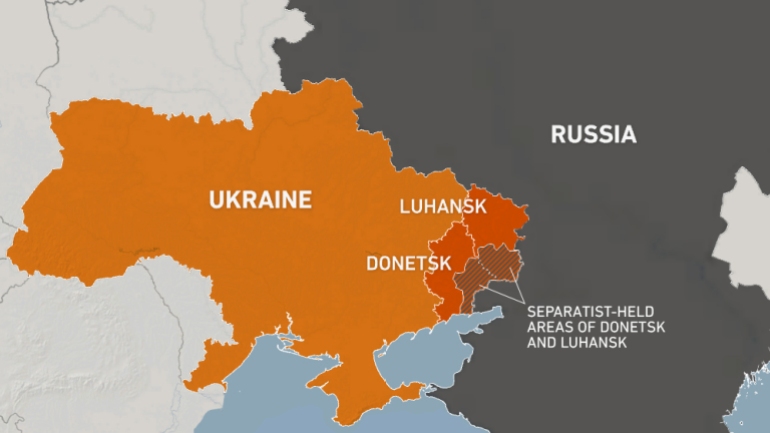Zelenskiy’s 10-Point Peace Plan
As the deadliest conflict in Europe since World War II enters its 11th month, Ukraine President Volodymyr Zelenskyy has outlined a 10-point peace plan to end the war with Russia. With Russian President Vladimir Putin expressing his willingness to come to the negotiating table, Zelenskyy’s plan focuses on various key areas, including nuclear and energy security, food security, the release of prisoners of war and deported persons, the implementation of the UN Charter and the restoration of territorial integrity, the withdrawal of Russian troops and the end of hostilities, justice and reparations, and counteracting ecocide.
1. Radiation and Nuclear Safety
- Russia’s nuclear arsenal has caused concerns during the war, but the fate of Europe’s largest nuclear power plant at Zaporizhzhia in southern Ukraine has been a particular worry.
- The plant, which is now under Russian control and has been shut down for months, is located in an area that has frequently been shelled.
- Zelenskyy is seeking demilitarization and guarantees against attacks on Zaporizhzhia and other Ukrainian nuclear plants.
2. Food Security
- The global food crisis triggered by the war led to a temporary “unprecedented agreement” in July, brokered by the UN and Turkey, allowing Ukraine to export its agricultural products from Black Sea ports via a protected corridor.
- However, the Black Sea Grain Initiative, which also enables Russia to export food and fertilizers to global markets, must be renewed every 120 days.
- Ukraine is seeking a lasting solution that allows it to safely ship agricultural consignments without the need for periodic agreements with Moscow.
3. Energy Security
- Since the war began, Russia has destroyed at least 40% of Ukraine’s energy facilities and has increased attacks on such targets as winter approaches.
- With the potential for more emergency blackouts in the cold weather, Zelenskyy wants assurance that Russia will not further harm Ukraine’s ability to provide energy to its people.
4. Release of All Prisoners of War and Deported Persons
- Up to 1.6 million Ukrainians are believed to have been forcibly deported to Russia since the invasion began in February, with Russia accused of “forcibly transferring or deporting protected persons from occupied territory to the territory of the occupier.”
- Zelenskyy has called for the release of all prisoners of war and deportees held by Russia, but experts say that while prisoner of war swaps have taken place, bringing back deportees could be more difficult.
5. Implementation of UN Charter and Restoration of Territorial Integrity
- Despite their differences, Ukraine sees Russia’s invasion as a violation of the UN Charter due to it constituting “annexation of a state’s territory by another state resulting from the threat or use of force.”
- Zelenskyy has requested that territory annexed by Russia be restored to Kyiv’s control, including territory such as Crimea that was annexed prior to the February invasion by Moscow.
6. Withdrawal of Russian Troops and End of Hostilities
- Prior to the invasion, it was reported that Russia deployed over 150,000 fighters to the Ukraine front. In addition, Putin is said to have ordered an increase in Russian troop size during the war.
- Zelenskyy has called for the complete withdrawal of all Russian fighters from Ukrainian territory and the end of hostilities to avoid any uneasy ceasefire that does not mandate a withdrawal of forces.
7. Justice, War Tribunals, and Reparations
- In September, Ukrainian officials reported documenting 34,000 potential war crimes committed by Russian forces and claimed that mass burial sites had been found across territory taken from Russian control.
- Ukraine’s justice ministry is also recording the damage caused by Russia with the aim of obtaining reparations. However, achieving these goals may prove difficult as it would require the global community to put significant pressure on Moscow.
8. Counteracting Ecocide
- Including the ecological impact as a key factor in peace negotiations is rare, but Zelenskyy has made it a priority in his peace plan.
- Environmental damage caused by the war, including the destruction of forests and wetlands, has led to the loss of biodiversity and habitat destruction. Zelenskyy is seeking an end to ecocide and the restoration of damaged ecosystems.
9. Humanitarian Aid
- The war has led to a humanitarian crisis, with thousands of people displaced and in need of assistance. Zelenskyy is calling for the provision of humanitarian aid to those affected by the conflict.
10. Diplomacy and Dialogue
- As a final point in his peace plan, Zelenskyy emphasizes the importance of diplomacy and dialogue in resolving the conflict and achieving peace.
Zelenskyy’s peace plan addresses a range of issues central to ending the war with Russia and achieving a lasting peace. From nuclear and energy security, to food security and the release of prisoners of war and deportees, the plan highlights the importance of addressing these issues in order to move forward and find a resolution. The inclusion of ecocide and the provision of humanitarian aid also highlight the impact the war has had on the environment and the people affected by the conflict. However, it remains to be seen how successful the plan will be in achieving its goals, as it will depend on the willingness of Russia and the international community to engage in dialogue and work towards a resolution.
Month: Current Affairs - December, 2022
Category: International / World Current Affairs


